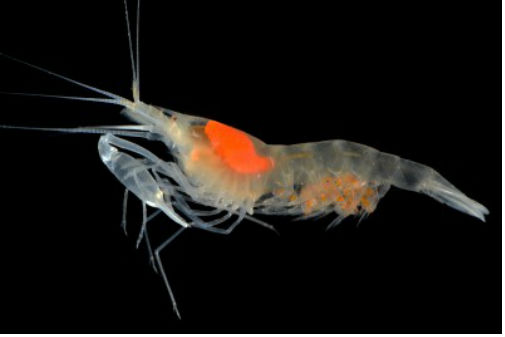200 million years of marine diversity predicts uncertain future
Posted on 26 March 2018

Marine shrimp appear to have slowed their diversification rate
Examining the patterns of diversity change across the evolutionary tree of the caridean shrimps, researchers at the Universities of York, Bath and Oxford University Museum of Natural History, researchers were able to show where rates of diversification sped up and slowed down over the last 200 million years.
The data shows that shrimps have independently transitioned from marine to freshwater habitats repeatedly, creating richer pockets of biodiversity. The relative isolation of lakes and rivers appear to increase the diversity of species in a similar way to Darwin’s finches on island chains.
The researchers warn that rising sea levels caused by climate change could put these pockets at risk, disrupting these freshwater distributions and leading to extinctions as a result.
Slowing down
By contrast, many marine shrimp live in close symbiotic associations with a variety of other animals including corals and sponges, which appears to have slowed their diversification rate.
Dr Katie Davis, from the University of York’s Department of Biology, said: “Our research is important for predicting the effects of ongoing, man-made environmental change, because the responses of groups in the geological past can predict their likely responses in the future.
“We hope our work will help us to learn lessons from the last 200 million of years – a different scale to that of most ecological studies.”
Millions of years
Caridean shrimps are a vital component of the marine food chain, and make an important contribution to fisheries worldwide.
Matthew Wills, Professor of Evolutionary Paleobiology at the Milner Centre for Evolution at the University of Bath, said: “Astonishingly, we know remarkably little about the physical and biological forces that shape patterns of diversity on a global scale. For example, why are there over a million species of insects but only 32 species in their immediate sister group, the little known remipedes?
“Diversity takes millions of years to evolve, but can be damaged in the blink of an eye. We are already losing diversity that has never even been documented, so it’s vitally important to understand the mechanisms that drive evolution into new species.”
The research, funded by the Biotechnology and Biological Sciences Research Council, is published in the journal, Nature Communications Biology.
Explore more news

Sodium channels in breast cancer cells a promising target for future treatments, study reveals
Thursday 25 July 2024

Cooling the classroom: University of York researchers to investigate UK schools’ responses to hot weather
Wednesday 24 July 2024

Hunter-gatherers kept an 'orderly home' in the earliest known British dwelling, study shows
Tuesday 23 July 2024

Study uses Game of Thrones to advance understanding of face blindness
Tuesday 23 July 2024

York academic contributes to new report on men’s health which reveals disparities between most and least deprived areas in the UK
Wednesday 17 July 2024
Media enquiries
About this research
'Freshwater transitions and symbioses shaped the evolution and extant diversity of caridean shrimps' is published by Dr Katie Davis at the University of York's Department of Biology, in partnership with the University of Bath and Oxford University Museum of National History, in Nature Communications Biology doi:10.1038/s42003-018-0018-6
